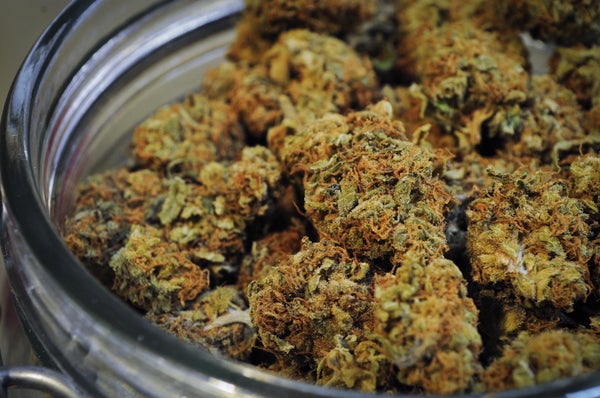Attitudes about marijuana seem to be changing and diversifying in Latin America. Throughout the 20th century its consumption was associated with criminal behavior. But over the last decade the drug's image has improved in some countries. A new survey reveals that in some Latin countries more than 40 percent of the population is in favor of legalizing marijuana, although in other countries favor remains low.
“Until now, the scientific literature showed that Latin America had a consistent position on decriminalization,” says lead author Andrés Mendiburo Seguel, a sociologist at the University of Santiago, Chile. “Our work points out that there are differences of opinion that could influence future public policies adopted in the region.” The survey was conducted by Mendiburo Seguel and researchers at Andrés Bello National University of Chile and the University of London, and was published in the International Journal of Drug Policy.
The researchers interviewed 8,952 adults in large cities in nine Latin American countries: Argentina, Uruguay, Chile, Bolivia, Mexico, Peru, Costa Rica, Colombia and El Salvador. More than 40 percent of the populations of Chile, Colombia, Uruguay and Mexico are in favor of legalizing marijuana whereas in El Salvador and Bolivia that number did not exceed 10 percent.
On supporting science journalism
If you're enjoying this article, consider supporting our award-winning journalism by subscribing. By purchasing a subscription you are helping to ensure the future of impactful stories about the discoveries and ideas shaping our world today.
The survey also assessed the acceptance of recreational marijuana use, with favorable responses in Uruguay (68 percent), Mexico (57 percent) and Costa Rica (55 percent). Less support for such use was reported in Peru (44 percent), El Salvador (31 percent) and Bolivia (30 percent). In all countries acceptance of medicinal marijuana use, either to treat pain or epilepsy, was greater than for recreational use. “There is a correlation between the countries that most disagree with the legalization of marijuana and their level of human development. The most conservative, such as Bolivia, Peru and El Salvador have a lower level of development. They are also countries where illegal drug trafficking is a big problem. The more liberal nations, such as Uruguay and Chile, reached a better level,” according to the researchers.
Yet, this is not the only possible interpretation, says Ricardo Pautassi, a researcher at the Mercedes and Martin Ferreyra Institute for Medical Research, CONICET, in Argentina, who did not participate in the survey. “The differences of opinion have to do with which public policies are being carried out in their countries. The human development index has some correlation with income, which promotes access to marijuana use. This in turn tends to facilitate positive views toward legalization for recreational and therapeutic use.”
Indeed, all nine nations have enacted laws that make it a crime to produce and distribute drugs, but laws around consumption vary widely. In Bolivia, Colombia and El Salvador, for example, using marijuana is still a criminal offense. Argentina’s Supreme Court decided in 2009 that the punishment for marijuana possession without distribution to third parties was unconstitutional. In Mexico consumption of small amounts was decriminalized whereas in Uruguay personal consumption was never a crime, although in 2013 the country passed a law allowing the production and sale of marijuana in amounts regulated by the state. “We have registered 5,864 people growing cannabis, and 33 clubs with up to 45 members who are also involved in the cultivation, processing and distribution,” says Héctor Suárez, head of the Uruguayan Drug Observatory. “You can’t advertise the product but it will be sold in pharmacies in the coming months. In this way social and sanitary support is given to people with problematic consumption, while illegal drug trafficking is avoided,” he adds.
Chile is debating the decriminalization of pot for recreational use, and in 2014 a pilot project for cultivating and distributing marijuana for medicinal purposes was authorized. Last December Colombia passed a law enabling marijuana for medicinal use. Peru has authorized up to eight grams of marijuana for personal use. In Costa Rica the use and possession of drugs for personal use is not considered a crime but it is not yet clear whether growing the plant for personal use is accepted.
The questionnaire also measured risk perception. On average, except in Bolivia, El Salvador and Peru, most people believe tobacco and alcohol are more harmful than marijuana. “The overall assessment is correct based on studies conducted in the U.K. While it is not harmless, marijuana causes less harm and involves less risk of dependence than alcohol, tobacco and drugs such as benzodiazepines (which are prescribed as sedatives), cocaine and heroin," says Enzo Tagliazucchi, an addiction researcher at the Netherlands Institute for Neuroscience.
